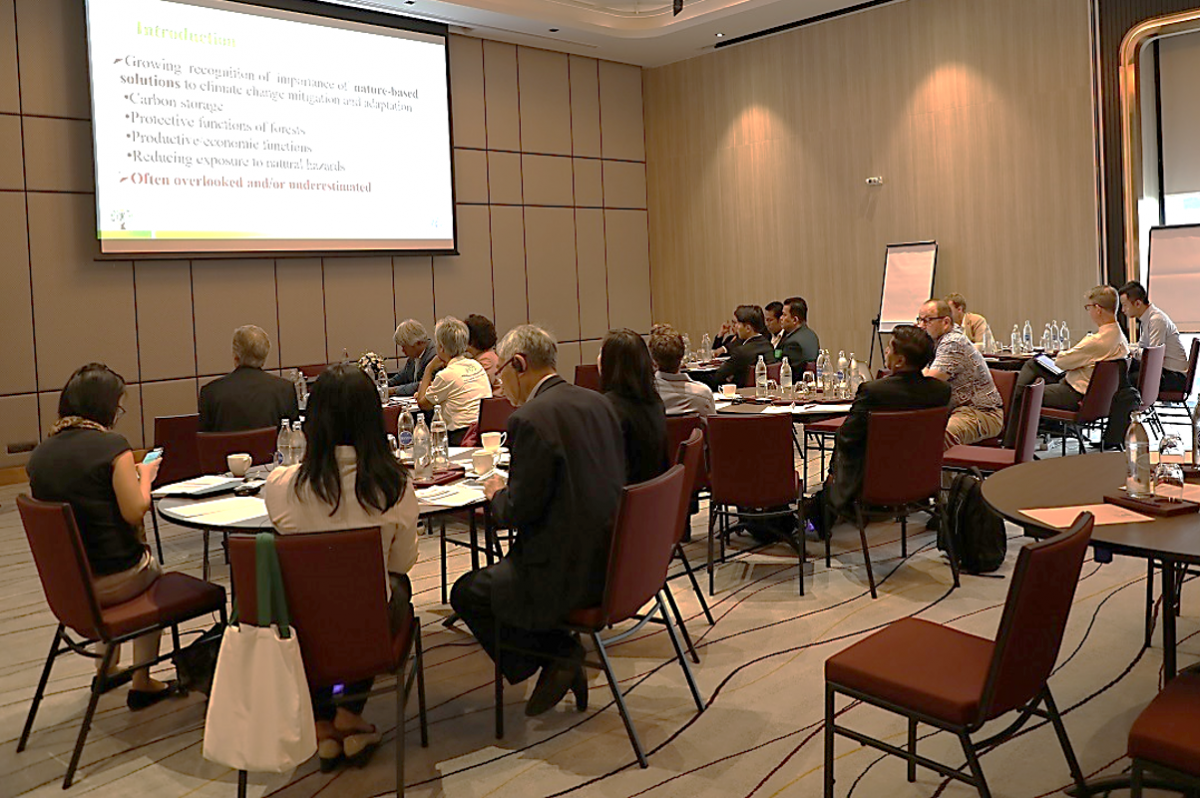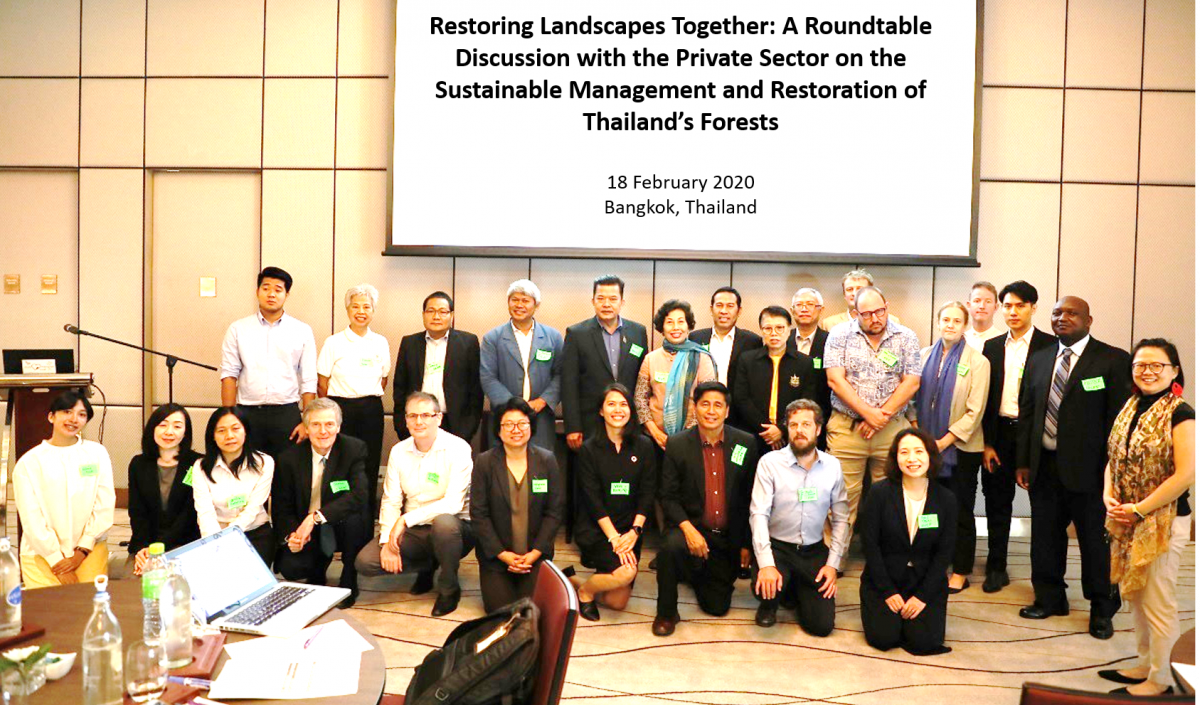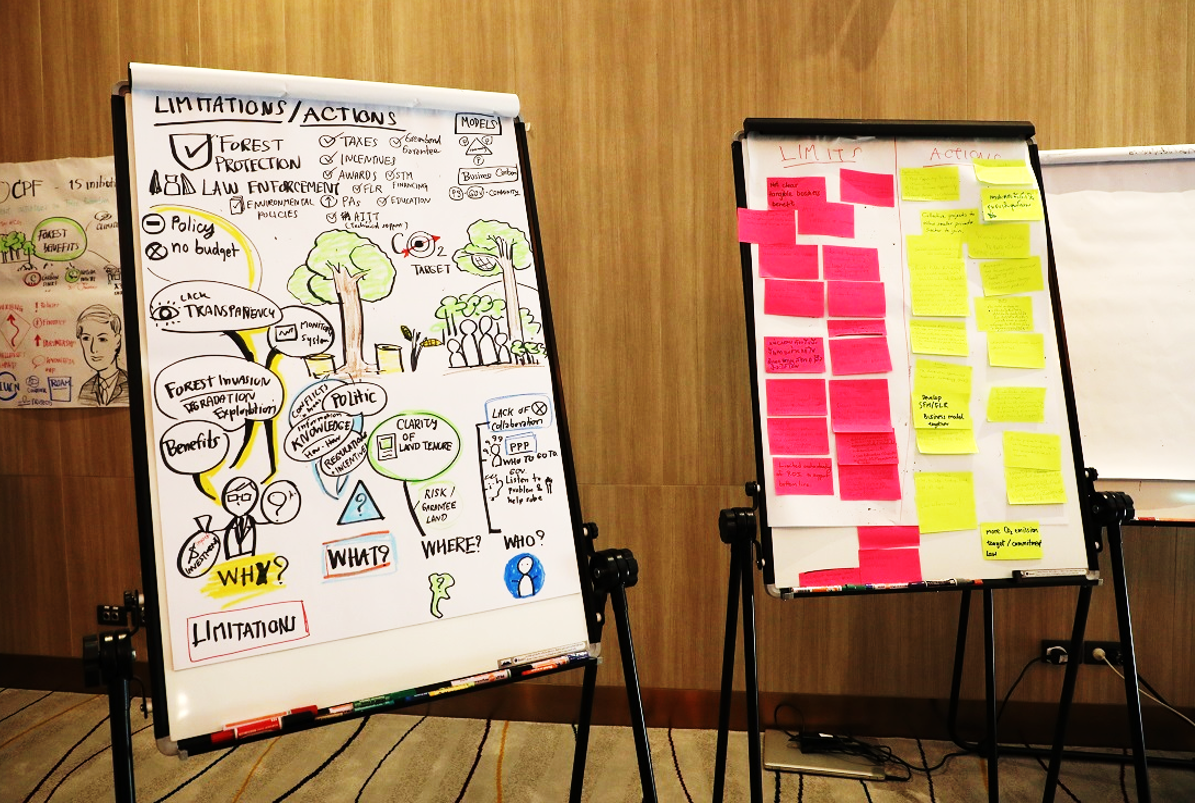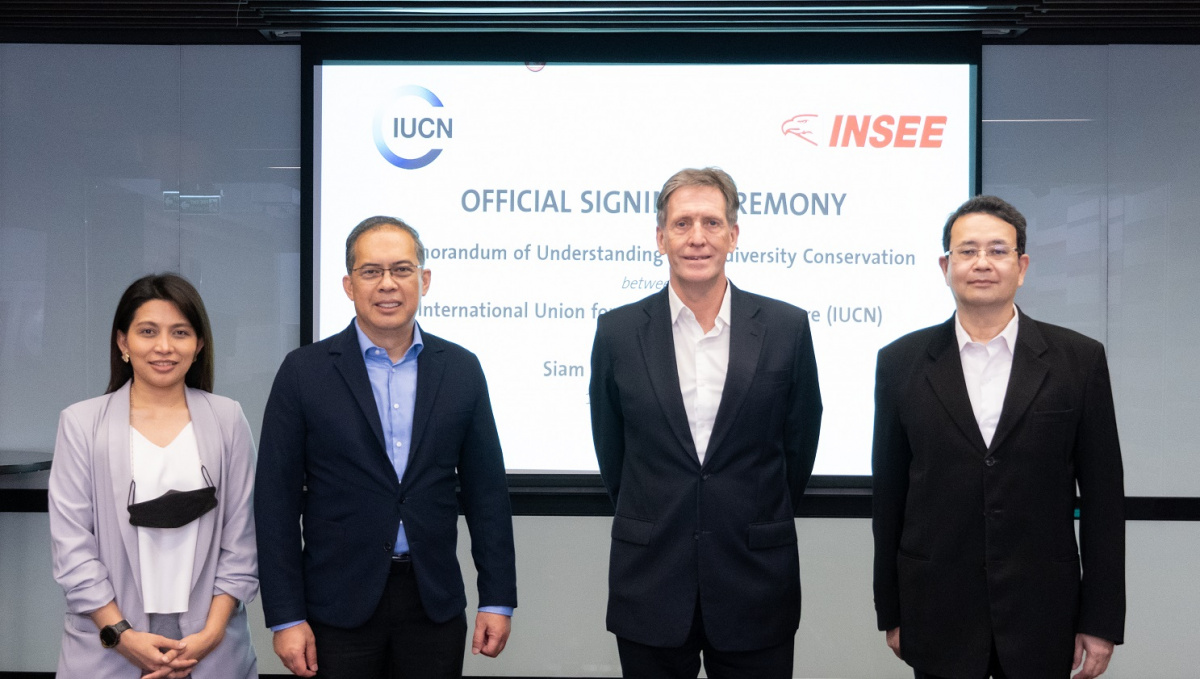Private sector role in sustainable management and restoration of Thailand’s forests
Over forty representatives from leading private sector companies in Thailand gathered to discuss new approaches for sustainably managing and restoring Thailand’s forests. This one-day workshop, hosted by International Union for Conservation of Nature (IUCN), the United Nations Forum on Forests (UNFF), and Royal Forest Department (RFD), was an important opportunity to showcase examples of successful private-sector-led sustainable forest management and forest landscape restoration initiatives in Thailand and to share ideas for scaling up these approaches. Recommendations for moving forward included the development of an enabling framework for private-sector investments and new incentives to support public-private partnerships on forests.
Thailand’s forests are increasingly under threat from illegal logging and hunting, agricultural expansion, uncontrolled forest fires, and other causes. National forest cover has declined by over forty percent from 1961 levels, with deforestation and other kinds of land degradation negatively affecting agricultural productivity, water quality, biodiversity, climate regulation, and livelihoods.
Turning this situation around will require new approaches and partnerships, particularly with the private sector.
‘’While forests provide a vast array of benefits to society, the amount of resources supporting their sustainable management and restoration is insufficient to sustain healthy and productive landscapes. The role of the private sector is therefore crucial in the long-term conservation of forests and needs to be improved and scaled-up,’’ stated Mr. Peter Gondo, United Nations Forum on Forests Secretariat, during his opening remarks.
One barrier to improved management of forests in Thailand has been the absence of a national strategy on forests. In response, the Thai Government is developing a long-term National Forest Financing Strategy (NFFS). The NFFS aims to identify key opportunities for investment in the sustainable management and restoration of Thailand’s forests, potential sources of funding for these investments including public-private partnerships, and provide recommendations for harnessing these opportunities. A key priority of the NFFS will be on strengthening the economic value and sustainability of Thailand’s forests, including through commercial plantation forests, agroforestry, Non-Timber Forest Products (NTFPs), and ecotourism, among others.
The roundtable workshop organized by IUCN, UNFF, and the RFD, provided important inputs into the development of the NFFS.
However, new investment models and innovative public-private partnerships are starting to emerge in Thailand. Mr. Phanit Phathrasarin, Bank for Agriculture and Agricultural Cooperatives (BAAC) presented an example of one such investment mechanism, where farmers use trees as guarantees for loans, thereby encouraging sustainable forest management and restoration. Dr. Wijarn Simachaya, Thailand Environment Institute (TEI) / Thailand Business Council for Sustainable Development (TBCSD) presented the Nan Sandbox Initiative, an innovative model of a public-private partnership to combat deforestation in Nan province. This project is made possible through a unique partnership between the Thai government, villagers, local leaders, and private sector experts.
‘’Agricultural expansion remains one of the most important drivers of deforestation in Thailand. Transformation shifts will require strong commitments from government, financing institutions, local communities, and businesses. Only innovative partnerships among these sectors will help revert the trend. While much work remains, today, we heard about such innovative partnerships and we are confident that these can be replicated and scaled-up as part of a strong enabling framework, “said Dr. Scott Perkin, Head, Natural Resources Group, IUCN Asia.






